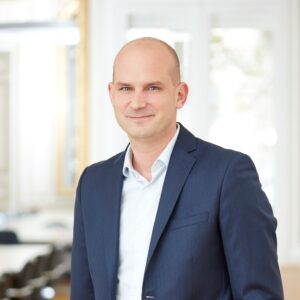The organic beauty market is expanding at an extremely attractive CAGR 2015-2025 of 9.5%, which is almost twice the rate of the beauty market as a whole. Moreover, this megatrend is only getting started, as consumers continue to shift their focus to ‘natural’ across all product segments, forcing traditional beauty players to reposition their product portfolios by investing in organic R&D and acquiring organic brands as they emerge.
A fast-growing trend within the Beauty industry, with a market size expected to double globally by 2025 at US$25bn
Organic beauty products are those that consist primarily of certified organic ingredients, coupled with various medicinal benefits and no or minimum side effects. There are numerous organic certifications, however USDA Organic (US) certification is the most widely recognized, and includes beauty products with at least 95% organic ingredients.
Growth is being supported by long-term trends…
- Rising demand for chemical-free products, including greater awareness of their harmful effects. After organic food, people are looking increasingly at organic beauty products.
- Customers increasingly want value-for-money products that are both natural and beneficial.
- Rising disposable incomes in established markets (especially among millennials), and also in emerging markets (the rising middle-class).
- Innovations are accelerating, which is creating more compelling products
Securing Organic Beauty Brands / Strategic Supplies or Knowledge is fuelling M&A activity
Although organic beauty is still a relatively small market, representing c. 10% of the global beauty market, the number of deals in this space has increased substantially in recent years: there were 8 deals in 2013 and 2014, compared to 37 between January 2015 and September 2017. We are seeing keen interest from both strategic buyers and financial investors who are eager to invest in pioneering organic brands as they emerge, including those that supply the raw materials (eg. see the Naturex deal below). A few recent examples to illustrate this growing move in the industry.
March 2018 – GOOP (US) raises $50 million in a series C, bringing its total outside investment to $82m.
Founded by the Hollywood actress Gwyneth Paltrow in 2008, the luxury organic skincare brand GOOP has grown rapidly over the last 10 years – annual revenues were estimated to be between $15 and $20 million in 2016. The company claimed it tripled its revenues year-over-year in 2016 and 2017, and is on track to more than double revenues in 2018. This latest investment will fund its international e-commerce expansion, particularly in Europe. PitchBook estimates a valuation of c. $250 million, after this Series C.
March 2018: Givaudan (CH), one of the world’s leading flavour and fragrance suppliers, acquires 98% of Naturex (FR), worth $1.6 billion, delisting Naturex from the Paris Euronext Stock Exchange.
This deal strengthens Givaudan’s organic offering in natural plant extracts (a key ingredient in organic beauty), as Naturex (rev in 2017: EUR 405m) is an international leader in plant extraction and the development of natural ingredients. Givaudan (rev in 2017: CHF 5.1 billion) is already the global leader in the creation of flavours and fragrances of all kinds. Gilles Andrier, CEO of Givaudan, says: “Naturex further complements our capabilities with its strong portfolio of plant extracts and natural ingredients across the food and beverage, nutrition and health and personal care sectors.”
This deal values Naturex at 20 to 22x earnings, according to analysts – a lofty valuation typically confined to the health-care and technology sectors, demonstrating that rising consumer demand for organic products is trickling into the supply chain.
October 2018 – L’Oréal (FR) launches new organic beauty brand, La Provencale Bio; and announces the acquisition of Logocos Naturkosmetik AG (GR).
French cosmetics giant L’Oréal has created this dedicated organic brand ‘La Provençale Bio’ for the French supermarket sector. It includes 12 certified organic products with all ingredients sourced from France: Beauty Oil (for face, hair and body), Youth Cream, Youth Oil night serum, Purity Mask, Radiant Moisturising Cream, Hand Ointment, three shower gels, two aluminium-free deodorants and a soap bar, with prices ranging from 3.95 euros to 14.19 euros. “We have seen the surge of organic in the food sector, but the wave is still rising when it comes to beauty, where the demand is much bigger than the current offer,” explains Raphaëlle Sabran-Egasse, Director General of Marketing for the French broad distribution division at L’Oréal.
Founded in 1978 by a naturopath, Logocos Naturkosmetik (rev in 2017: $59m) is based in Hanover, Germany and employs c. 340 people. The company pioneered natural cosmetics, with brands such as Logona (premium) and Sante (young, trendy). All products are vegan and bio-certified, and cover haircare, hair color, skincare, hygiene and makeup. With this acquisition, L’Oréal plans to expand the sales of Logocos Naturkosmetik brands internationally. “Logocos brings to the Division two authentic and certified naturaI brands as well as a unique expertise from a worldwide pioneer of the organic beauty market…to seize what starts,” explains Alexis Perakis Valat, President of L’Oréal’s Consumer Products Division. “This acquisition reinforces the position of the Division on one of today’s major beauty ascending trends.”
My view on the market
Organic beauty is in the ‘sweet-spot’ – benefitting from strong long-term growth trends and also high valuation multiples in the M&A market. There is no shortage of willing buyers, as the market scrambles to reposition product portfolios to keep up with rising customer demand. We expect organic beauty’s 10% market share to significantly grow over the next 5 to 10 years. It’s a perfect time to surf on this trend to create value either by accelerating growth internationally or selling to a strategic player willing to do so.
